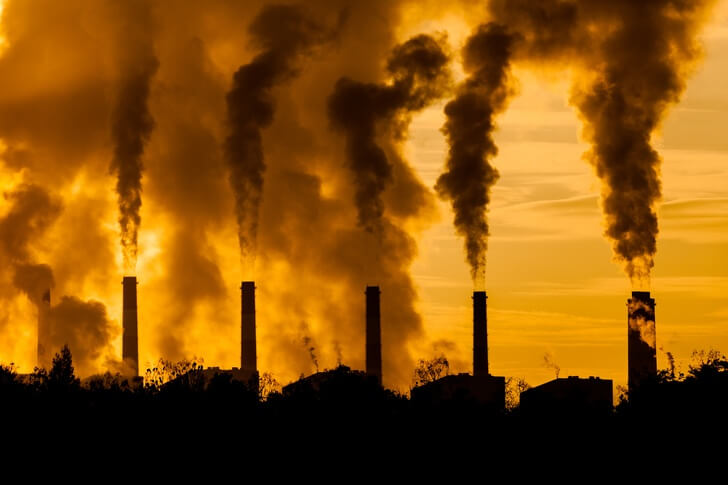Two and half centuries ago, humans set out on a journey to develop more robust economies. During this period, the world began to see significant improvements in healthcare, food supplies and rapidly improved housing and transportation services.

This was the beginning of the era of the industrial revolution, where we saw a transition to new manufacturing processes, technological advancement and socioeconomic development. It was the process of change from an agrarian and handicraft economy to one dominated by industrial activities.
The technological changes associated with the industrial revolution required the use of new materials (iron and steel), new energy sources (fossil fuels – initially coal, then gas, petroleum…) and the invention of new machinery. These changes made it possible for better utilisation of natural resources and the mass production of manufactured goods.
The benefits of such a system was immense as agricultural improvements led to abundant food supply and major economic changes resulted in better wealth distribution and prosperity. The ripple effect could be felt in the society at large, as the quality of life of people began to rise sharply.
The world as we see it today, would not have been possible without the industrial revolution.
However, the legacy of the industrial revolution is not all positive news. Today’s changing weather patterns, global warming, environmental degradation, food security and health problems, to mention a few, are attributable to industrial activities.
The “Cost of Air Pollution”, a joint study by the World Bank and the Institute for Health Metrics and Evaluation (IHME) reveals the grim reality of air pollution. Industrial processes is the main cause of air pollution and remains a major health issue for all governments around the world.
The study showed that air pollution accounted for 1 in 10 deaths worldwide in 2013. The cost of this number of deaths to the global economy in terms of labour income was a staggering $225 billion.
Air pollution remains the number four (4) killer, behind high blood pressure, dietary risks and smoking.
“Air pollution is a challenge that threatens basic human welfare, damages natural and physical capital, and constraints economic growth. We hope this study will translate the cost of premature deaths into an economic language that resonates with policy makers so that more resources will be devoted to improving air quality. By supporting healthier cities and investments in cleaner sources of energy, we can reduce dangerous emissions, slow climate change, and most importantly save lives,” said Laura Tuck, Vice President for Sustainable Development at the World Bank.
Despite the problems outlined above, the industrial revolution continues to drive innovation and reshape the manufacturing sector. The world economy still heavily relies on industrial activities for its survival.
However, it cannot be business as usual! So many innocent lives cannot be sacrificed in the name of economic growth and development. This approach to doing business is counterproductive and unsustainable as we have seen in the World Bank study. The long term consequences are dire and therefore calls for immediate action. We must change the way we run our factories in order to reduce the effects of CO2 gas emissions on human health and the environment.
“Both the public and private sectors of the world economy have a role to play in ensuring a better environment. Government’s role as a policymaker is to lead the way with investments that seek to promote green energy sources, said Schalk Hoon, Managing Director of Envirox, a leading air filtration solutions company in Johannesburg.
“Industries and corporate leadership on the other have a responsibility towards the communities within which they operate. They must be made to comply with environment regulations and harsher penalties meted out to offenders, Mr. Hoon concluded.




























